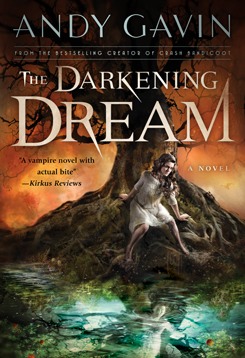 Title: Before I Fall
Title: Before I Fall
Author: Lauren Oliver
Genre: Magical Realism YA
Length: 117,000 words, 470 pages
Read: May 16-17, 2011
Summary: Very very good.
This is one of the best YA books I’ve read in a long while. Part Groundhog Day, part The Source Code, part Judy Blume, part The Lovely Bones — all itself.
We start with a high school girl, Sam, who dies in a car accident, and is doomed(?) to repeat the last day of her life again and again. Seven times to be exact. Sound like a recipe for repetition? It’s not.
First of all the writing is lovely. Really lovely. I’ve read perhaps 50+ first person girl narratives in the last year alone and this one had the best voice. It’s fairly well tied with Mary E. Pearson in that regard for recent entries (Judy Blume still wins for lifetime achievement). It’s funny clever without the annoying Snark. The voice is so good that it just drags you through the entire book, and it’s a pretty long book for YA. Lauren Oliver really is a lovely writer. The dialogue is good, the narrative description and interior monologue are amazing, and even the flowery interstitial description that glues together connected days is short but evocative. The Lovely Bones also had great voice, and a tremendous first half, before it fell apart into an abysmal mess of moral apathy. Before I fall is better.
There are some things worth noting. The characterization and the high school realism is top notch. I was reminded a bit of a modern Freaks and Geeks in that there was that kind of insightful tragio-comic realism. These girls felt pretty darn real. Even the minor characters had some depth. It’s this more than anything else that echoed the master of all YA: Judy Blume. Blume uses dialogue more liberally, as it’s her main method of characterization. Oliver prefers interior monologue and narrative description. The net result is similar. There’s a lot of detail here too, but the voice manages to make it interesting. Sam and her friends are popular girls, and more than a little bitchy, but they don’t extend into characterture. They are a little bad, but not too bad — realistically so. This is no melodramatic Gossip Girl. There is plenty of drinking, rudeness, etc. The sexuality is muted. Handled well enough, but perhaps a bit tamer than it could have been.
Now as to structure. Oliver does a really first notch job repeating the same day seven times without ever being dull. Sam makes different choices, and on some days this plays out very differently. One time she doesn’t even go to school. Still, even when the same scenes are repeated, and they are, different angles are shown, revealing and painting from different directions. This is hard to do, and must have taken considerable planning and rewriting. I’m actually facing a bit of this myself in my second novel, which is a time travel book and involves overlap and revisiting.
I’m going to stop for a second to pontificate on writing this kind of fiction. One of the things that makes this work in Before I Fall is the loose structure of the high school day. Sam’s day includes: getting up, driving with her friends to school, various classes, lunch, ditching, hanging out after school, and the party. These events flow from one to the next because of the inherent structure. If she skips lunch, or English class, she can pick back up on the schedule, because it’s immutable and set at a level greater than herself. This it has in common with Back to the Future I and II. There the structure of the dance forms a background on which Marty can play. In my own story, I have been trying to revisit a complex action scene multiple times. The whole scene — even the first time — folds out from the actions of the protagonist without any background structure, which makes altering that flow… complex.
In any case, in Before I Fall there is a also a very strongly structured arc, like, Groundhog Day, the protagonist has to learn a series of lessons from the failures of the first and subsequent trials. Much like a video game level, she gets to play it over and over again until she gets it right. This is very satisfying to read. Too bad real life doesn’t work like that.
The seven day structure also helps avoid the dreaded “reveal” problem. There is no giant structural reveal, the premise is setup in the first couple pages, and so the book does not suffer from the first half being better than the second. It races right on to the end. But there is an end, and I’m not entirely sure how I feel about it. Given the options, Oliver chose a pretty good one, and it does leave one with a deep sense of catharsis. So it was probably the right choice. Still the looming shadow over the entire affair left me with a deep sense of sadness not unlike that caused by reading The Time Traveler’s Wife (the excellent book, not the mediocre film).
For a review of Oliver’s second novel, Delirium, click here.









